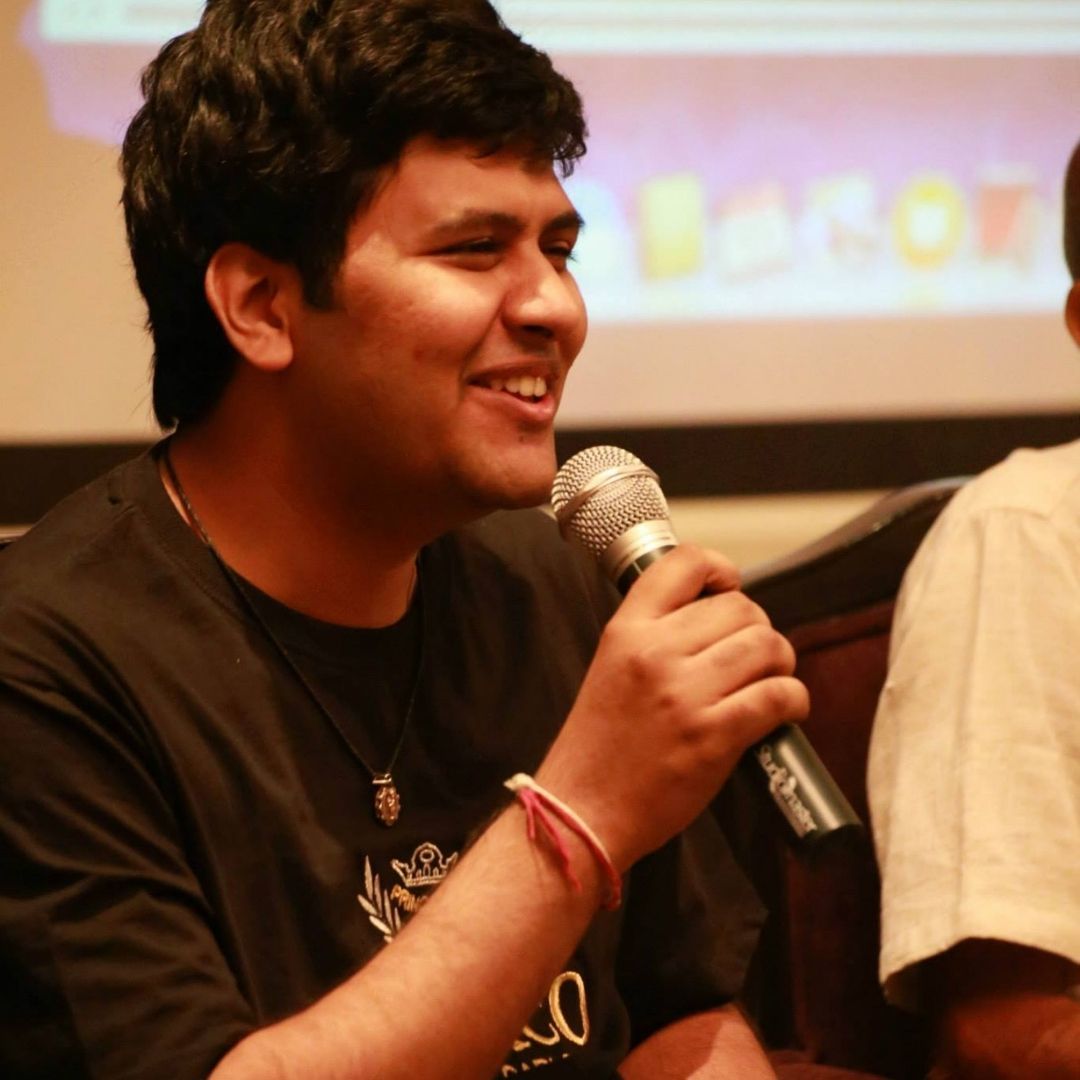Interview with Raghavendra Satish Peri

Every week, we meet with audience members with disabilities who are willing to come forward and share a little bit about their own personal journey and experiences, attending live, in-person, or virtual speaking or training events. Through their unique and generous perspectives, speakers, trainers, facilitators, and other communication professionals can hopefully learn about some of the things that they do well, but also (and maybe more importantly) about some of the things they could improve to provide an experience that is truly inclusive of everyone.
Meet Raghavendra, an audience member who is blind
So without further ado, let’s dive right into this week’s interview with Raghavendra Satish Peri (he/him). Raghavendra is blind, and comes to us from Telangana, India.
Introductions
QUESTION 01 Can you tell us a bit about yourself, and how your disability might impact your experience, as someone who attends live in-person and virtual events?
I am a Digital Transformation specialist, working with enterprises ranging from fortune fifty to fortune one thousand in the areas of digital accessibility & digital marketing. I am also a person with a visual disability and other health challenges. Last year, I went through an organ transplant. Before the health challenges, I was a regular at local meetups and conferences, both as a speaker and attendee. The primary challenge in offline events is networking, finding washrooms, finding breakout rooms without sighted help.
The core of an offline event lies in networking. As an entrepreneur, I learned quickly that what I know combined with whom I know is more powerful. I owe my success to all the networking I did during my events. In the last few years, I have not been to any offline events, and online events do not provide the same opportunity to build relationships.
Things that ruin the experience
QUESTION 02 Thinking back on some of your experiences attending in-person or virtual events, what are some of the worst things speakers, trainers, and other communication experts can do to ruin your experience as an attendee?
Often the title of the talk is fancy, but the talk is related to something else, or ends up being very generic. It is very disappointing, as I expect added content or alternate perspectives. A lot of times speakers/trainers talk to the sighted community, so they tend to use a lot of visual cues, and I am left wondering about what is being explained. When speakers/trainers interact with audiences, they generally are not aware of the presence of people with disabilities. Accessible presentations or notes are usually not made available either, prior to the talk or after the talk.
Things that make a positive impact
QUESTION 03 Can you share some of the great things speakers, trainers, and other communication experts sometimes do that make a positive impact on your ability to fully enjoy your in-person or virtual event experiences?
As a disabled individual, I was afraid to ask questions during the time allotted for questions and answers. I would try to connect with speakers online or offline and clarify my doubts until it was well received, and then I started building long-lasting relationships.
Another wonderful experience is when speakers/trainers don’t use any slides. It makes the talk so enjoyable. These kinds of interactive talks are more impactful than the ones delivered by reading slides.
Sharing a piece of advice
QUESTION 04 If you had one piece of advice to give speakers, trainers, and other communication experts, so their content became more inclusive of people who have disabilities, what would it be?
Inclusion is widely spoken about, now more than ever before, but implementing is still difficult. The only advice I have for the speaker/trainers is to “be humble”. There are a lot of people who want to interact and build that relationship. So, receive them with open arms and help them in whatever way you can, because no one makes it alone, and everyone needs help, guidance, and mentoring to succeed.
Wrapping up
QUESTION 05 Thank you for sharing some of your insights with us today. As we wrap up our conversation, is there anything that you’d like to add, such as another thought, another piece of advice, another perspective, etc.?
Speakers and trainers can change people’s lives. Every talk is a piece of art that will last longer than those few minutes or hours.
Connect with our guest on social
Interested in knowing more about our guest this week? You can follow Raghavendra on LinkedIn and Twitter, or read his blog at DigitalA11Y.com.

About Denis Boudreau
Denis Boudreau is a consultant, trainer, and speaker specializing in digital accessibility and disability inclusion. He works with organizational leaders who want to equip their teams with the skills to create accessible websites and digital products – so no one is left behind. A Certified Professional in Web Accessibility (CPWA), Denis has trained thousands of web professionals over the past 20+ years and delivered hundreds of workshops in both English and French. He has helped leading brands like Netflix, Salesforce, and Victoria’s Secret embed accessibility into their digital strategies, empowering them to meet legal obligations, improve user experience, and connect with more people, more effectively.
